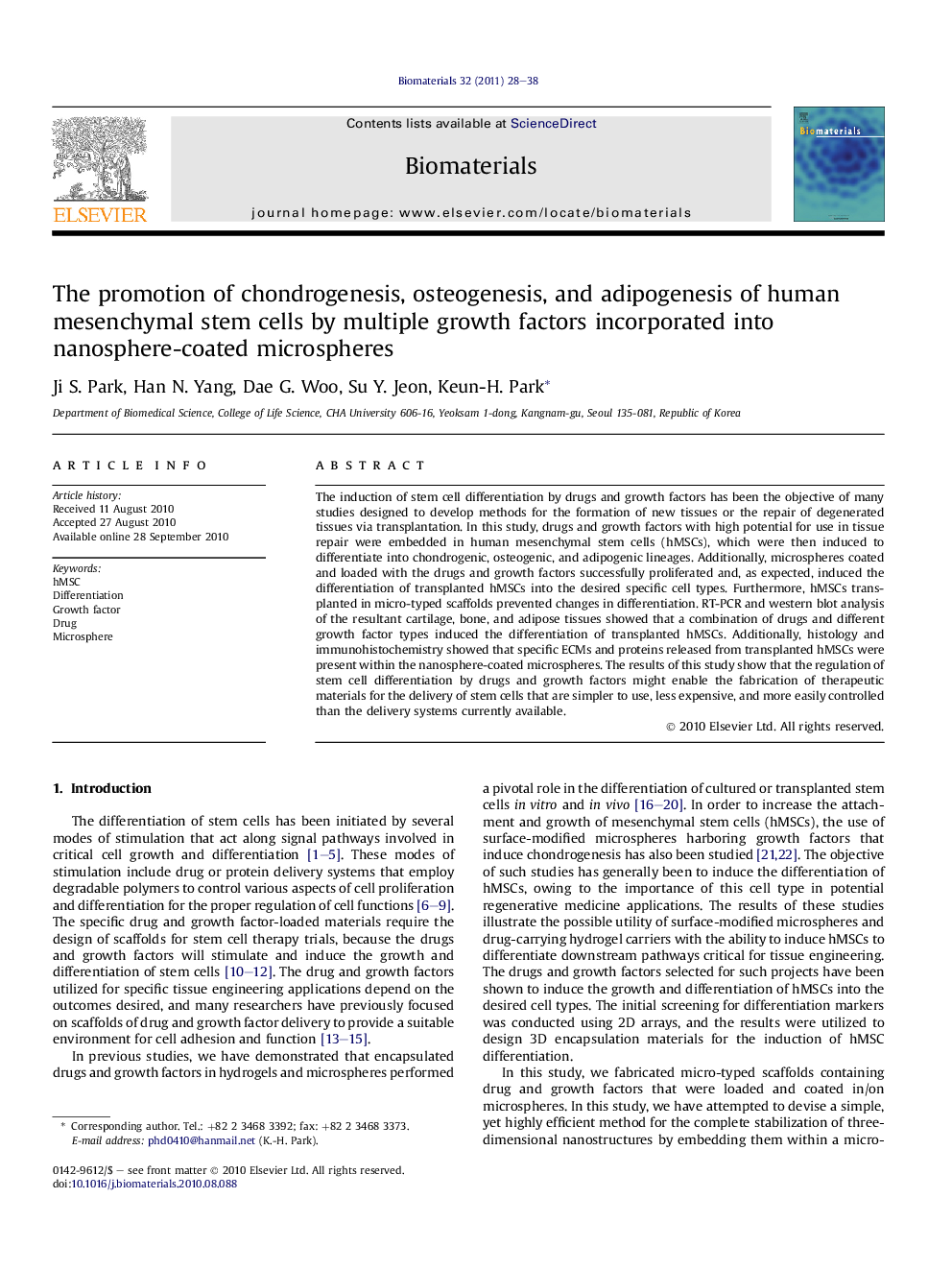| Article ID | Journal | Published Year | Pages | File Type |
|---|---|---|---|---|
| 8397 | Biomaterials | 2011 | 11 Pages |
The induction of stem cell differentiation by drugs and growth factors has been the objective of many studies designed to develop methods for the formation of new tissues or the repair of degenerated tissues via transplantation. In this study, drugs and growth factors with high potential for use in tissue repair were embedded in human mesenchymal stem cells (hMSCs), which were then induced to differentiate into chondrogenic, osteogenic, and adipogenic lineages. Additionally, microspheres coated and loaded with the drugs and growth factors successfully proliferated and, as expected, induced the differentiation of transplanted hMSCs into the desired specific cell types. Furthermore, hMSCs transplanted in micro-typed scaffolds prevented changes in differentiation. RT-PCR and western blot analysis of the resultant cartilage, bone, and adipose tissues showed that a combination of drugs and different growth factor types induced the differentiation of transplanted hMSCs. Additionally, histology and immunohistochemistry showed that specific ECMs and proteins released from transplanted hMSCs were present within the nanosphere-coated microspheres. The results of this study show that the regulation of stem cell differentiation by drugs and growth factors might enable the fabrication of therapeutic materials for the delivery of stem cells that are simpler to use, less expensive, and more easily controlled than the delivery systems currently available.
